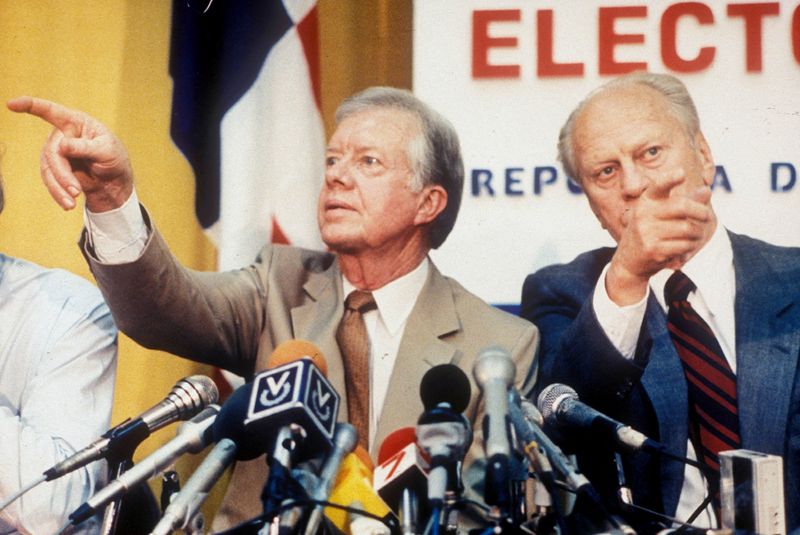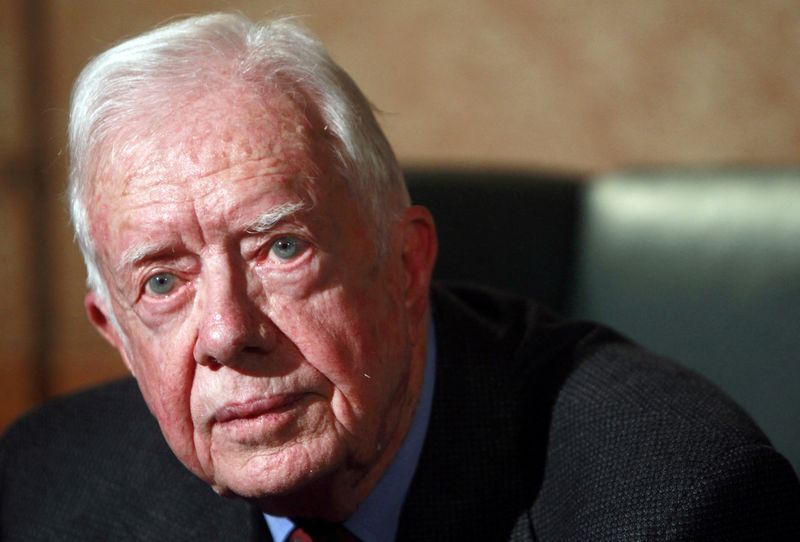By Moira Warburton
WASHINGTON (Reuters) -Former U.S. President Jimmy Carter died at age 100 on Sunday. Here are several key events from the Georgia Democrat's time in office from 1977 to 1981.
CAMP DAVID ACCORDS
The Camp David Accords were a series of agreements signed in 1978 between Israeli Prime Minister Menachem Begin and Egyptian President Anwar Sadat. The agreements, brokered by Carter at the presidential retreat in Maryland, eventually led to Israel and its Arab neighbor signing their first peace treaty.
Begin and Sadat were awarded the Nobel Peace Prize in 1978 for their work toward peace. Carter won in 2002 in part for his "untiring effort to find peaceful solutions to international conflicts."
U.S.-CHINA RELATIONS
Although relations between the United States and China had been slowly warming for several years prior to Carter taking office, it was under his administration that the two countries overcame opposition at home and announced they would officially recognize each other, opening formal diplomatic relations in 1979 after months of secret negotiations.
IRAN HOSTAGE CRISIS
In 1979 Iranian revolutionaries seized 52 staff members at the U.S. Embassy in Tehran and held them hostage for 444 days, ostensibly to punish the United States for giving asylum to Iran's recently deposed leader. Carter came off looking feeble in the public eye after a military rescue mission he ordered in 1980 ended in failure with eight U.S. troops dying in an aircraft mishap.
The hostages were released minutes after Ronald Reagan was sworn into office to replace Carter in 1981.
ENERGY CRISIS
Energy prices and production were shaky throughout the 1970s, but the Iranian revolution in 1979 was a flashpoint for upheaval in global oil markets, leading to a major decrease in production and resulting jump in cost. The summer of 1979 was marked by long lines of motorists waiting at gas stations for rationed fuel. Carter responded by pledging to decrease reliance on foreign oil imports and focus on improving energy efficiency, but public confidence was irreparably shaken.

ECONOMIC WOES
Carter's (NYSE:CRI) re-election campaign in 1980 was marred by fears of a recession. His administration struggled to deal with inflation at over 14% by 1980, caused by high energy prices after the 1979 gas shortage. He and his advisers attempted to tackle inflation by increasing interest rates to over 17%, but this contributed to a recession during the presidential campaign of 1980.
